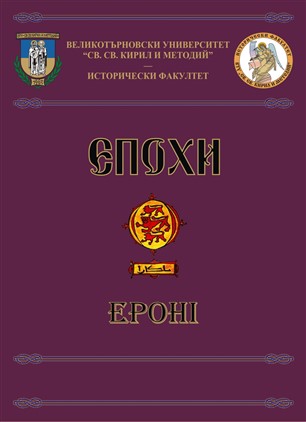Трагедия (не)знания Ореста у Драконция: между Микенами и Фивами
Orestes’ Tragedy of (un)awareness in Dracontius: Between Mycenae and Thebes
Author(s): Victoria Pichugina, Andrey MozhajskySubject(s): History, Archaeology, Ancient World, Middle Ages, 6th to 12th Centuries
Published by: Великотърновски университет „Св. св. Кирил и Методий”
Keywords: Dracontius; Orestis tragoedia; late antiquity,;Aeschylu;Euripides; Sophocles; Thebes
Summary/Abstract: The dramatized epic Orestis Tragoedia is one of the works of Dracontius, a poet of the second half of the 5th century, who addressed both pagan and Christian themes. In this work, Dracontius not only combines different mythological stories about Orestes and his relatives, but also highlights Orestes’ moving into adulthood as one of the main storylines. Dracontius breaks from the existing tradition, within the framework of which young Orestes was placed under the care of Strophius, the King Crissa in Phocis, and then returned to his homeland to avenge the death of Agamemnon. His Orestes is not so much a “product” of educating people who seek to implement the revenge plan, but rather a person who implements a hidden self-education program that helps him in the struggle for power. Dracontius’ protagonist is struck with a specific type of moral disease; he is portrayed either as a man who knows (= an adult) or a man who does not know (= still a child). The article also explores the use of Thebes by Dracontius as a mirror, which reflects the events of the Orestis Tragoedia. Draconius also uses the mythological tradition associated with Thebes as a means of assessing the behavior of his heroes.
Journal: Епохи
- Issue Year: XXVIII/2020
- Issue No: 2
- Page Range: 270-284
- Page Count: 15
- Language: Russian

